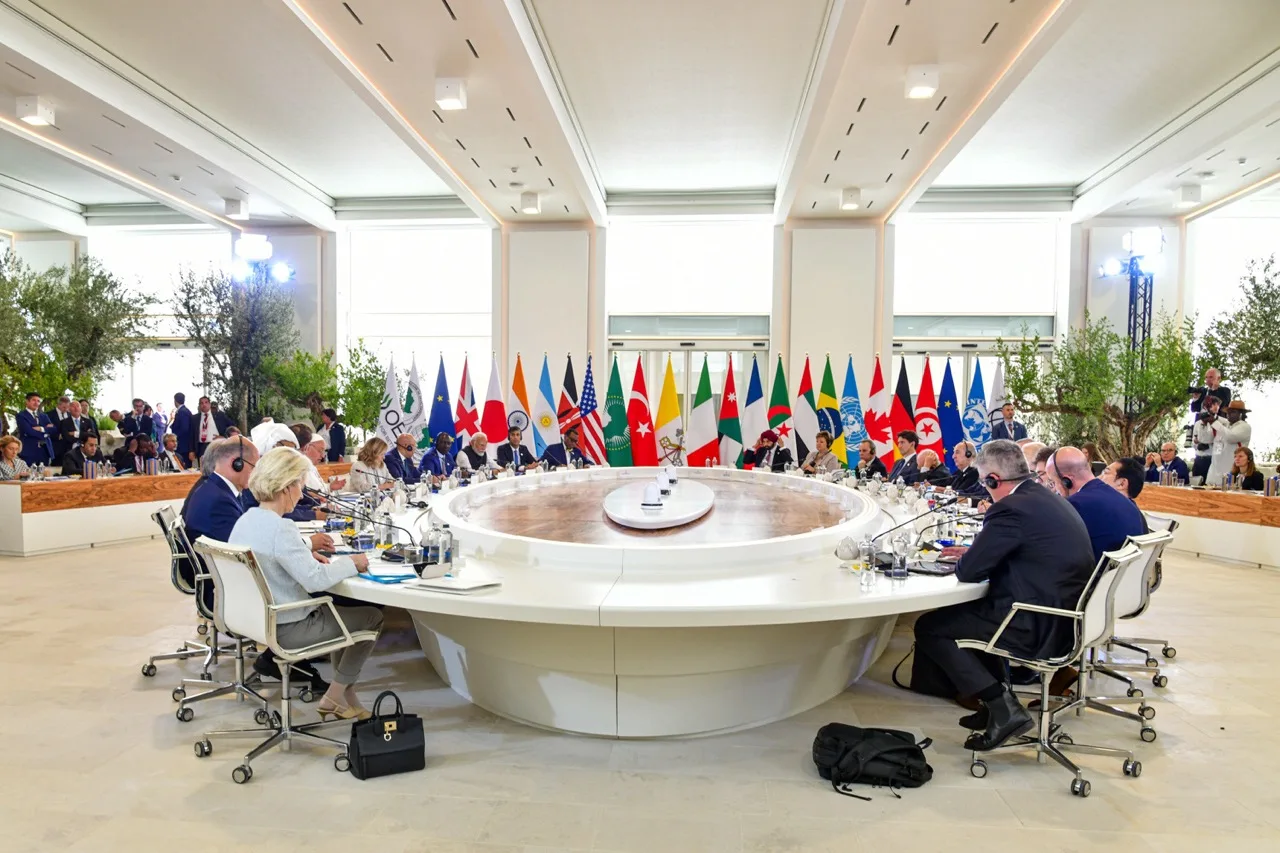The 50th G7 Summit was held from June 13-15, 2024, in Borgo Egnazia, Apulia, Italy, bringing together leaders from Canada, France, Germany, Italy, Japan, the United Kingdom, the United States, and the European Union. The summit focused on global economic issues, climate change, health, digital transformation, and geopolitical stability. India also participated, reflecting its growing role in global economic and strategic discussions.
What is the G7 Summit?
The G7 Summit is an annual gathering of leaders from seven of the world’s largest advanced economies: Canada, France, Germany, Italy, Japan, the United Kingdom, and the United States, along with the European Union. Originally established in 1975 as the G6, the forum provides an opportunity for these countries to discuss and coordinate economic policies. Over time, the agenda has expanded to address a wide range of global issues, including security, environmental sustainability, and development.
Why is the G7 Summit Organized Every Year?
The G7 Summit is organized annually to allow member countries to collaborate on pressing global challenges. It serves as a platform for dialogue and coordination on policies that impact global economic stability, security, and development. By meeting regularly, the G7 leaders can respond to emerging issues, build consensus on international policy, and reinforce their collective commitments to addressing global problems.
More Read
Key Takeaways from the 50th G7 Summit
Climate Change and Environmental Policies: Leaders reaffirmed their commitment to achieving net-zero carbon emissions by 2050, discussing the acceleration of renewable energy transitions and enhancing climate resilience in vulnerable regions.
Global Health and Pandemic Preparedness: The G7 pledged increased support for global health initiatives, emphasizing pandemic preparedness and equitable access to vaccines and medical supplies.
Economic Stability and Digital Transformation: Discussions highlighted the need for economic stability amidst global uncertainties, with a focus on digital transformation, cybersecurity, and ethical implications of artificial intelligence.
Geopolitical Stability and Security: The summit addressed ongoing geopolitical tensions, including the situation in Ukraine, and emphasized a unified approach to global security.
Development and Growth in Africa: A joint statement on “Energy for Growth in Africa” underscored the G7’s commitment to supporting sustainable development in African nations through investments in infrastructure and renewable energy projects.

Role and Contributions of Participating Countries
- United States: Focused on global security, economic stability, and technological innovation.
- Canada: Emphasized climate change and environmental policies, as well as inclusive economic growth.
- United Kingdom: Advocated for global health initiatives and pandemic preparedness.
- France: Played a key role in discussions on climate change and digital transformation.
- Germany: Highlighted the importance of economic stability and cybersecurity.
- Italy: As the host, led the discussions on sustainable development and geopolitical stability.
- Japan: Focused on technological advancements and regional security in Asia.
- European Union: Emphasized unity and collective action on global issues.
India’s Participation
India’s presence at the G7 Summit signified its increasing importance on the global stage. India’s contributions were pivotal in discussions on digital transformation, climate change, and economic development, particularly in the context of the Global South.
Historical Context of the G7 Summit
The G7, originally the G6, was established in 1975 as a forum for the world’s major industrialized democracies to discuss economic policies. The first meeting was held in Rambouillet, France, with members including France, West Germany, Italy, Japan, the United Kingdom, and the United States. Canada joined in 1976, making it the G7. The European Union has also been represented at the summit since 1977. Over the decades, the G7 has expanded its agenda to address broader global issues such as security, climate change, and development.
Italy’s Role in Hosting the G7
Italy has hosted the G7 Summit several times, with the most recent before 2024 being in Taormina in 2017. The choice of Apulia for the 50th summit highlights the region’s historical significance as a crossroads of cultures and its commitment to fostering international dialogue.
The 50th G7 Summit in Italy showcased the member countries’ dedication to addressing pressing global issues collaboratively, with a focus on sustainability, health, economic stability, and security. As the G7 continues to evolve, its role in shaping global policies remains crucial.
For more information, you can visit the official G7 Summit 2024 website.












